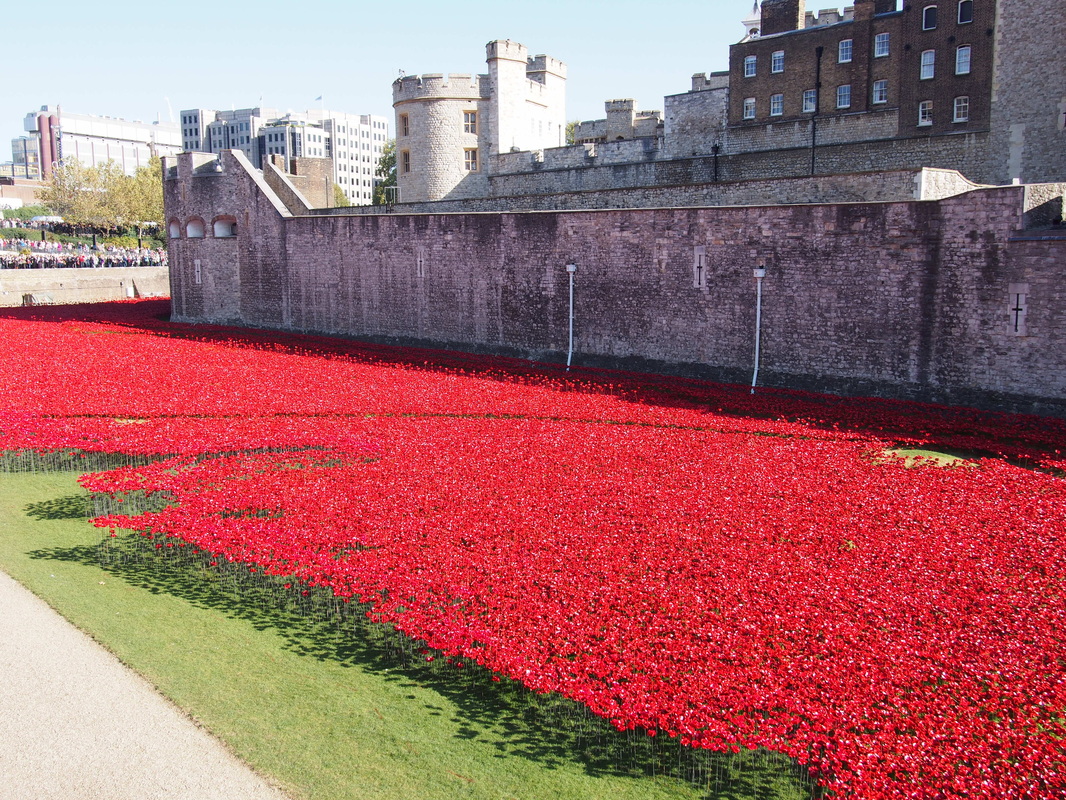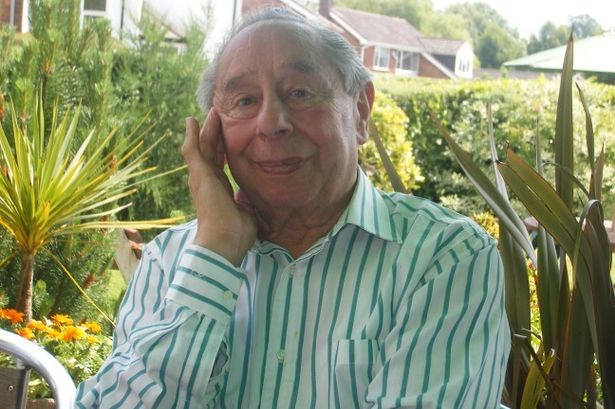
Visitors have been warned off visiting Paul Cummin's ceramic poppies at the Tower of London because of overcrowding. I'm not surprised. When I visited earlier this week, it was impossible to get a moment's contemplation to survey the meaning of the flowers, as thousands of gawping visitors (myself included) jostled for the best spot to take a snap or get a better a better view.
In case you don't know Cummins has made 888,246 of the symbolic blooms, which will be filling up the Tower moat in the build-up to Remembrance Sunday. Unfortunately, the meaning of the loss and sacrifice they represent is rather lost in the scramble to catch up with the capital's latest "must see" exhibit.
Don't worry if you miss it - just make sure you buy an ordinary poppy instead. And wear it with pride. I always do. Here's why. If it wasn't for the British people and their military forces I almost certainly wouldn't be sitting here writing this today.
My dad grew up in a German town called Ratibor, and although he was Jewish, there was such a small community, he went to a Christian school. His family were not the Jews of the ghettos as they are so often portrayed in the movies - they were secular, integrated. Everyday people. Ordinary Germans.
My grandfather ran a coaching inn, and there's a family photograph of him and his father in German army uniform all kitted out for action in the Great War. Yes, they too were willing to make the ultimate sacrifice for their country - only for the "other" side.
None of this mattered to Hitler whose psychopathic bloodlust willed the extermination of my Dad's family and his entire race.
Thankfully, in the months leading up to WW2, it didn't seem to matter to the British people either - but in a rather different and humane way. Under a programme called Kindertransport founded by Sir Nicholas Winton young Jewish kids from were allowed into this country from Germany and other parts of Europe provided they could find a sponsor willing to house them. 10,000 Jewish youngsters were saved in this way.
My Dad was one of the lucky ones. He was taken on by a farmer in Derbyshire and at the age of 13, put to work in the fields. It was tough, agricultural toil. He was an adolescent lad, separated from his family and all he knew and placed in an alien landscape. He couldn't even speak the language. But it was better than the alternative.
His brother Werner was taken in by a kindly lady in Southampton who we knew as "Auntie Gladys". Being 11, he was sent to school, and went on to become an architect and town planner in Guildford.
They were the only members of their immediate family to survive. Parents, grandparents, aunts and uncles all perished in The Holocaust.
It wasn't just Kindertransport that saved them of course. That's where the Army, Navy and Royal Air Force come into it. In the first two years of the war, Britain stood virtually alone against the Nazi menace. Once the Allies came on board many thousands more British and Empire troops gave their lives.
If they hadn't done so, and had the Nazis rolled over this country, what hope then for my Dad and his brother? And what chance of life then for me and my kids?
That's why you shouldn't fret too much if you haven't joined the sharp elbows in the throng surrounding Paul Cummins installation in London. The poppies that count are on a street corner near you, now. Please give generously.
In case you don't know Cummins has made 888,246 of the symbolic blooms, which will be filling up the Tower moat in the build-up to Remembrance Sunday. Unfortunately, the meaning of the loss and sacrifice they represent is rather lost in the scramble to catch up with the capital's latest "must see" exhibit.
Don't worry if you miss it - just make sure you buy an ordinary poppy instead. And wear it with pride. I always do. Here's why. If it wasn't for the British people and their military forces I almost certainly wouldn't be sitting here writing this today.
My dad grew up in a German town called Ratibor, and although he was Jewish, there was such a small community, he went to a Christian school. His family were not the Jews of the ghettos as they are so often portrayed in the movies - they were secular, integrated. Everyday people. Ordinary Germans.
My grandfather ran a coaching inn, and there's a family photograph of him and his father in German army uniform all kitted out for action in the Great War. Yes, they too were willing to make the ultimate sacrifice for their country - only for the "other" side.
None of this mattered to Hitler whose psychopathic bloodlust willed the extermination of my Dad's family and his entire race.
Thankfully, in the months leading up to WW2, it didn't seem to matter to the British people either - but in a rather different and humane way. Under a programme called Kindertransport founded by Sir Nicholas Winton young Jewish kids from were allowed into this country from Germany and other parts of Europe provided they could find a sponsor willing to house them. 10,000 Jewish youngsters were saved in this way.
My Dad was one of the lucky ones. He was taken on by a farmer in Derbyshire and at the age of 13, put to work in the fields. It was tough, agricultural toil. He was an adolescent lad, separated from his family and all he knew and placed in an alien landscape. He couldn't even speak the language. But it was better than the alternative.
His brother Werner was taken in by a kindly lady in Southampton who we knew as "Auntie Gladys". Being 11, he was sent to school, and went on to become an architect and town planner in Guildford.
They were the only members of their immediate family to survive. Parents, grandparents, aunts and uncles all perished in The Holocaust.
It wasn't just Kindertransport that saved them of course. That's where the Army, Navy and Royal Air Force come into it. In the first two years of the war, Britain stood virtually alone against the Nazi menace. Once the Allies came on board many thousands more British and Empire troops gave their lives.
If they hadn't done so, and had the Nazis rolled over this country, what hope then for my Dad and his brother? And what chance of life then for me and my kids?
That's why you shouldn't fret too much if you haven't joined the sharp elbows in the throng surrounding Paul Cummins installation in London. The poppies that count are on a street corner near you, now. Please give generously.

 RSS Feed
RSS Feed
